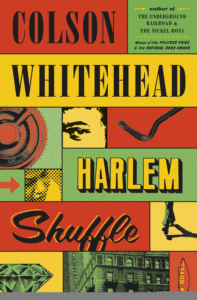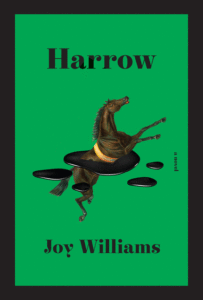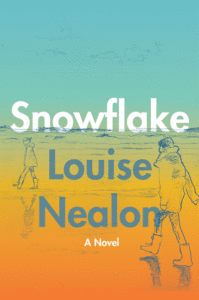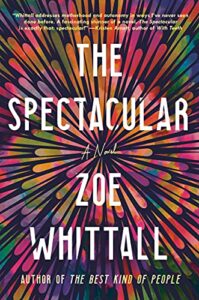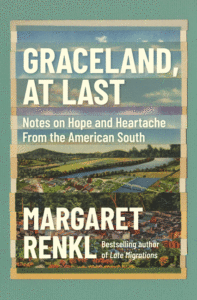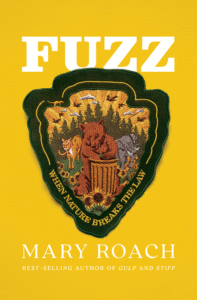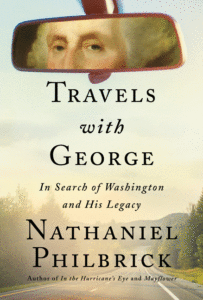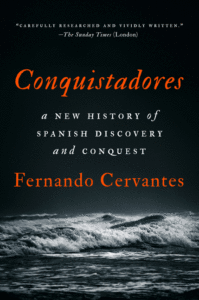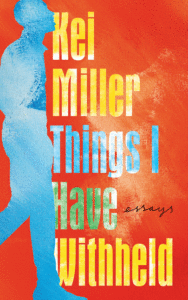Here are the best reviewed books of the week.
Colson Whitehead’s Harlem Shuffle, Joy Williams’ Harrow, Margaret Renkl’s Graceland, at Last, and Mary Roach’s Fuzz all feature among the best reviewed books of the week.
Brought to you by Book Marks, Lit Hub’s “Rotten Tomatoes for books.”
1. Harlem Shuffle by Colson Whitehead
(Doubleday)
16 Rave • 4 Positive
Read an interview with Colson Whitehead here
“Whitehead’s own mind has famously gone thataway through nine other books that don’t much resemble one another, but this time he’s hit upon a setup that will stick. He has said he may keep Ray going into another book, and it won’t take you long to figure out why … brings Whitehead’s unwavering eloquence to a mix of city history, niche hangouts, racial stratification, high hopes and low individuals. All of these are somehow worked into a rich, wild book that could pass for genre fiction. It’s much more, but the entertainment value alone should ensure it the same kind of popular success that greeted his last two novels. It reads like a book whose author thoroughly enjoyed what he was doing … The author creates a steady, suspenseful churn of events that almost forces his characters to do what they do. The final choice is theirs, of course … Quaint details aside, this is no period piece … Though it’s a slightly slow starter, Harlem Shuffle has dialogue that crackles, a final third that nearly explodes, hangouts that invite even if they’re Chock Full o’ Nuts and characters you won’t forget even if they don’t stick around for more than a few pages.”
–Janet Maslin (The New York Times)
2. Harrow by Joy Williams
(Knopf)
10 Rave • 2 Positive • 1 Mixed
Read an interview with Joy Williams here
“Williams’ tone is caustic and discomfiting; it brings to mind the moment in which we are living, when matters of science and public health are regularly ridiculed or redirected in favor of political or economic platitudes…At the same time, her vision is too capacious for Harrow to be read so narrowly … The implication is that chaos is both our invention and our destiny, which means there can be no solace or forgiveness for our collusion with it. This is the source of Williams’ fierce and unrelenting anger, and it invests Harrow with a potent moral weight … a piece of writing in the vein of Samuel Beckett or Franz Kafka, its humor weaponized by rage … ‘Before the eyes can see, they must be incapable of tears,’ Williams tells us—excavating, as she does throughout this magnificent and moving novel, the middle distance between silence and experience.”
–David L. Ulin (The Los Angeles Times)
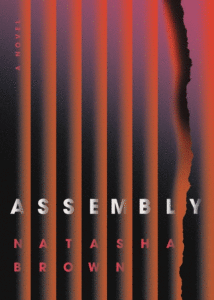
3. Assembly by Natasha Brown
(Little Brown and Company)
7 Rave • 6 Positive
Watch Natasha Brown in conversation with Meena Kandasamy at the Hay Festival here
“What it lacks in length—a slim 112 pages—it makes up for in strength. A scathing takedown of the British class system and the country’s views on race, immigration and gender politics, Assembly packs a wallop … Though impactful, the skeleton story line of Assembly isn’t what makes the book so unshakable. It’s the way Brown expertly captures the narrator’s mental state through an internal dialogue that’s alternately plagued and disgusted by how others perceive her … Assembly is a searing account of a woman trying to ‘be invisible, imperceptible,’ even in the face of what most would consider triumph. In truth, her thoughts—and actions—do just the opposite. They signify a rousing, inspired voice demanding to be recognized and heard.”
–Alexis Burling (The Washington Post)
=4. Snowflake by Louise Nealon
(Harper)
3 Rave • 4 Positive
Read Louise Nealon on the importance of how we write mental health in fiction here
“… a warm-hearted book: several degrees warmer, in fact, than the work of Sally Rooney, to which it has already been compared … intimate, chatty, immensely readable. There’s an original and distinctive voice here, and a strong sense of character and place … a loosely plotted book in which events arise from character rather than from any imposed structure — all the more impressive, therefore, that it’s such a pacey read. Character is Nealon’s great strength. Uncle Billy, with his cluttered caravan and his barely concealed loneliness, is a wonderful creation; but it’s Debbie, so convincingly rendered as a volatile mixture of vulnerability and determination, who most fully engages … a novel about how it feels to be young, uncertain and troubled; it conjures this condition with honesty and precise observational skill. Nealon has a nice ear for the apposite simile … Some parts of the book feel a bit undercooked. Xanthe, for example, veers towards caricature at points, and certain narrative threads aren’t fully tied up. Yet this is excusable in a debut novel, especially in one that contains so many riches. Snowflake is an auspicious beginning.”
–Kevin Power (The Sunday Times)
=4. The Spectacular by Zoe Whittall
(Ballantine)
3 Rave • 4 Positive
Read Zoe Whittall on Zoe Whittall on Judy Blume, Bluets, and hating The Handmaid’s Tale here
“Zoe Whittall’s taut novel The Spectacular has all the trappings to become the season’s dishiest read. It’s also a gem of literary fiction … The plot of The Spectacular isn’t clearly defined; all three women’s stories connect at certain points, and the narrative jumps forward and backward in time. But this is not a typical sprawling family drama, and in Whittall’s smart and capable hands, these unconventional women are given the space to experience their full, complicated lives. Whittall takes the long view with this multigenerational arc to explore the responsibilities of motherhood, the boundaries of biology and the price for women’s freedom to live fully actualized lives.”
–Jessica Wakeman (BookPage)
**
1. Graceland, at Last: Notes on Hope and Heartache from the American South by Margaret Renkl
(Milkweed)
7 Rave • 3 Positive
“Renkl’s sense of joyful belonging to the South, a region too often dismissed on both coasts in crude stereotypes and bad jokes, co-exists with her intense desire for Southerners who face prejudice or poverty finally to be embraced and supported … Renkl at her most tender and most fierce … Renkl’s gift, just as it was in her first book Late Migrations, is to make fascinating for others what is closest to her heart … Any initial sense of emotional whiplash faded as as I proceeded across the six sections and realized that the book is largely organized around one concept, that of fair and loving treatment for all—regardless of race, class, sex, gender or species … What rises in me after reading her essays is Lewis’ famous urging to get in good trouble to make the world fairer and better. Many people in the South are doing just that—and through her beautiful writing, Renkl is among them.”
–Barbara J. King (NPR)
2. Fuzz: When Nature Breaks the Law by Mary Roach
(W. W. Norton)
8 Rave • 1 Positive
Read an interview with Mary Roach here
“Mary Roach is the Deborah Vance of science writing … you’re hooked, and for good reason. Roach has a sure sense of drama, and she crafts sentences that crackle and pop … In some alternative universe, Mary Roach and Deborah Vance are show business’ hottest comic duo, headlining nightly at the Bellagio or the MGM Grand, packing them in with laugh-till-you-cry tales of bad bears and bad breakups, rogue leopards and rogue lovers. Until that day arrives, you can savor this excellent book.”
–Peter Fish (The San Francisco Chronicle)
3. Travels with George: In Search of Washington and His Legacy by Nathaniel Philbrick
(Viking)
1 Rave • 6 Positive • 2 Mixed
“Visiting the cities Washington once rode through on his white horse, or paraded through in a cream-colored carriage with two enslaved postillions, or strode into wearing a simple brown suit (the new president had a feel for political theater), Philbrick delivers the details … Philbrick keeps one foot in, and a respectful perspective on, the present throughout, assessing hazards then…and now … With Travels With George, he succeeds again … Washington emerges as the complicated, flawed but no less heroic leader that his newborn country desperately needed. The quantity and quality of the details Philbrick gathers as he straddles past and present make this an extraordinary read.”
–Priscilla Kipp (BookPage)
4. Conquistadores: A New History of Spanish Discovery and Conquest by Fernando Cervantes
(Viking)
4 Rave • 1 Positive • 1 Mixed
“.. masterful … Cervantes marshals an enormous array of primary and secondary sources to tell the story of the decades that followed Christopher Columbus’ arrival on an island off what is now Cuba … There’s a depressing sameness to the way Cervantes tells the story. The indigenous populations sometimes fought back, often with great skill and courage, and could themselves be brutal to their enemies. But they were ultimately no match for the Europeans, who came in greater and greater numbers and carried artillery that seemed to give them God-like powers … Cervantes sets out not to whitewash such atrocities but to place them in context.”
–Jim Zarroli (NPR)
5. Things I Have Withheld by Kei Miller
(Grove)
4 Rave • 1 Positive
“In 15 thoughtful and impassioned essays, prizewinning Jamaican novelist, poet, and essayist Miller reflects on race, gender, family, language, and, most pointedly, the body … Many of these powerful appraisals of the body come in the form of letters to James Baldwin and Kenyan writer Binyaranga Wainaina, but Miller also offers musings on his family’s secrets, portrayals of homeless gay and transgender boys, and questions of literary appropriation. A spirited collection from a significant voice of both fiction and nonfiction.”




